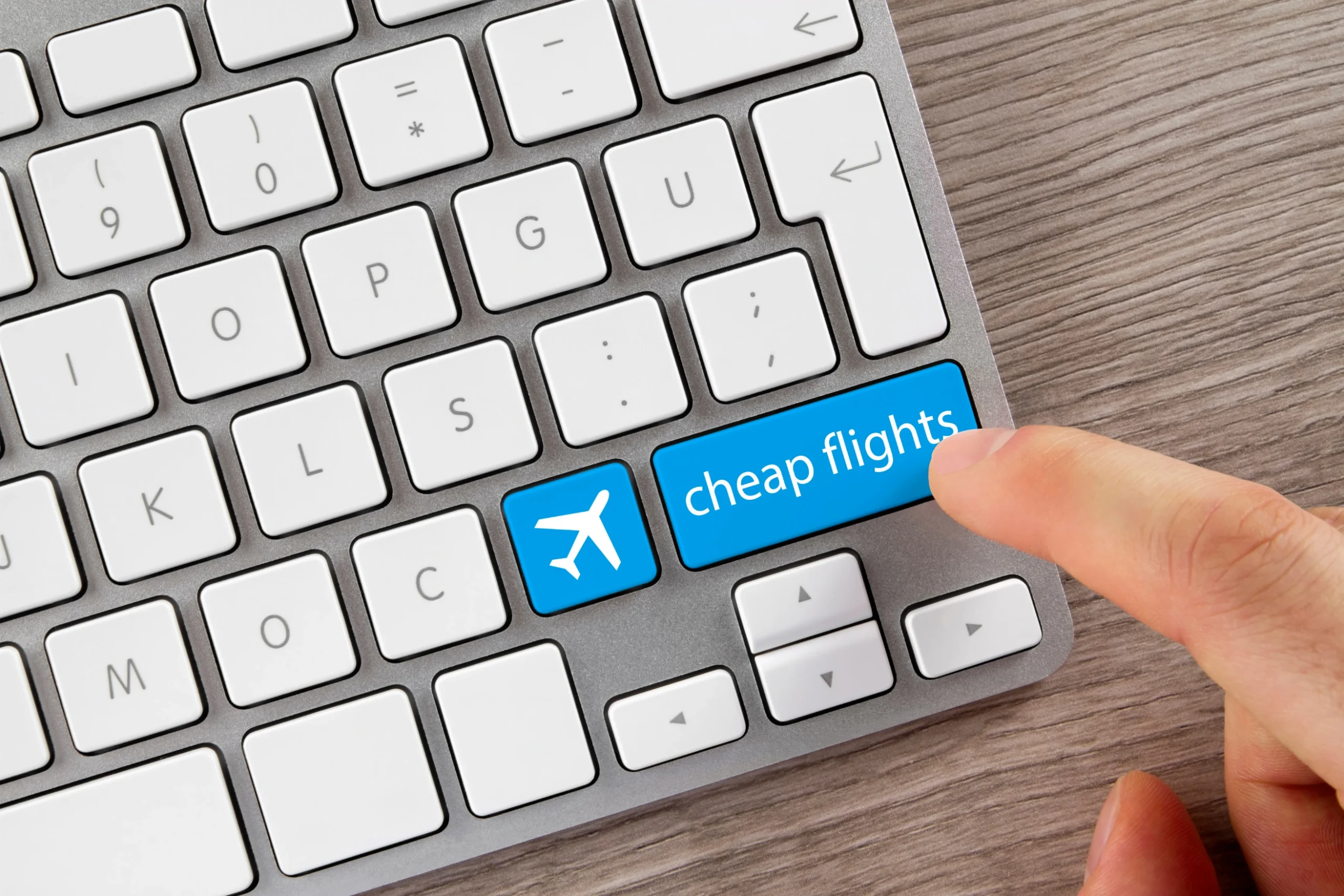Finding affordable airfare has never been easier thanks to online booking platforms, flight comparison tools, and insider strategies that savvy travelers use to secure significant savings. With the right knowledge and techniques, you can consistently find cheap flights while avoiding travel agent fees and commissions. Whether you’re planning a quick domestic trip or an international adventure, these proven methods will help you navigate the complex world of airline pricing to find the best deals available.
Understanding How Airline Pricing Works
Dynamic Pricing and Algorithm Strategies
Airlines use sophisticated algorithms that adjust prices based on demand, competition, booking patterns, and even your browsing history. Understanding these systems helps you time your purchases strategically and avoid peak pricing periods. Airlines typically release seats in different fare classes, with the cheapest options selling first, making timing crucial for securing the best deals.
Peak vs Off-Peak Travel Periods
Flight prices fluctuate dramatically based on seasonal demand, holidays, and business travel patterns. Tuesday through Thursday departures generally offer lower fares than weekend flights, while shoulder seasons provide significant savings compared to peak travel periods. Understanding these patterns helps you plan trips during naturally lower-priced windows.
Best Flight Comparison Websites and Tools
Comprehensive Search Platforms
Google Flights, Kayak, and Skyscanner offer strong search engines that compare costs from different airlines at the same time. These platforms offer flexible date searches, price alerts, and destination exploration tools that help identify the cheapest options for your travel needs.
Airline Direct Booking Benefits
While comparison sites help identify low fares, booking directly with airlines often provides additional benefits like easier changes, better customer service, and loyalty program credit. Many airlines also offer price matching policies that combine the convenience of direct booking with competitive pricing.
Mobile Apps and Real-Time Alerts
Flight booking apps provide convenient search capabilities and push notifications for price drops on routes you’re monitoring. Set up alerts for your desired destinations and receive notifications when prices fall below your target thresholds.
Timing Strategies for Maximum Savings
Optimal Booking Windows
Domestic flights typically offer the best prices when booked 1-3 months in advance, while international flights should be booked 2-6 months ahead for optimal savings. Last-minute deals exist but are increasingly rare as airlines optimize their revenue management systems.
Flexible Date Strategies
Use flexible date search tools to identify the cheapest travel days within your available window. Shifting your departure date by only one day can save you hundreds of dollars, especially during peak travel seasons or when traveling to popular places.
Hidden City and Stopover Techniques
Some advanced travelers use hidden city ticketing, where you book a flight with a layover in your actual destination and skip the final segment. However, this approach violates airline terms of service and may result in penalties or the deletion of loyalty program accounts.
Money-Saving Booking Techniques
Incognito Browsing and Cookie Management
Airlines and booking sites track your search history through cookies and may show higher prices to users who repeatedly search the same routes. Use incognito browsing mode or clear your cookies between searches to avoid potential price manipulation.
Alternative Airport Strategies
Consider flying into smaller or secondary airports near your destination, as these often offer significantly lower fares. Factor in ground transportation costs and convenience when evaluating these options, but the savings can be substantial for budget-conscious travelers.
Multi-City and Open-Jaw Bookings
Sometimes booking separate one-way flights or using multi-city options results in lower total costs than round-trip tickets. Experiment with different booking combinations, especially when traveling to multiple destinations or during peak seasons.
Loyalty Programs and Credit Card Benefits
Airline Frequent Flyer Programs
Even occasional travelers benefit from joining airline loyalty programs, which provide access to member-only deals, free checked bags, and upgrade opportunities. Focus on one or two programs rather than spreading your travel across multiple carriers.
Travel Credit Cards and Points Strategy
Travel rewards credit cards can significantly reduce flight costs through sign-up bonuses, ongoing earnings, and travel-specific benefits like free checked bags and priority boarding. Choose cards that align with your spending patterns and travel preferences.
Points Transfer and Redemption Strategies
Understand how to maximize point values through strategic transfers and redemptions. Sometimes transferring credit card points to airline partners provides better value than booking directly through the card’s travel portal.
Budget Airlines and Alternative Options
Low-Cost Carrier Considerations
Budget airlines like Southwest, Spirit, and Frontier offer significantly lower base fares but charge extra for services included with traditional carriers. Calculate total costs including bags, seat selection, and other fees when comparing options.
Package Deals and Bundle Savings
Flight and hotel packages sometimes provide better overall value than booking separately, especially for popular vacation destinations. Compare individual component costs against package pricing to identify genuine savings opportunities.
Advanced Search Strategies
Error Fares and Flash Sales
Occasionally, airlines publish incorrect fares due to system errors or currency conversion mistakes. Websites like Secret Flying and The Flight Deal specialize in finding these opportunities, though bookings aren’t guaranteed to be honored.
Regional Airline and Codeshare Options
Smaller regional carriers sometimes offer competitive pricing on routes dominated by major airlines. Codeshare agreements can also provide access to routes and pricing that aren’t available through direct bookings.
Technology Tools and Resources
Price Prediction and Tracking
Price prediction services like as Hopper and Google Flights use previous data to forecast whether current prices will increase or decrease. These tools help determine whether to book immediately or wait for potential decreases.
Fare Alert Systems
Set up multiple price alerts across different platforms to monitor your desired routes continuously. Competitive alerts often reveal pricing discrepancies between booking sites and help identify optimal purchase timing.
Conclusion:
Booking affordable flights independently requires patience, flexibility, and strategic use of available tools and techniques. The key to consistent savings lies in understanding airline pricing patterns, utilizing comparison platforms effectively, and maintaining flexibility in your travel dates and destinations when possible.
Modern technology has democratized access to flight deals that were once exclusive to travel industry professionals. By combining smart search strategies with proper timing and flexibility, you can achieve significant savings while gaining valuable skills for future travel planning. Remember that the best deal is one that meets your specific needs and budget constraints, not necessarily the absolute lowest price available.
Start implementing these strategies gradually, beginning with simple comparison shopping and price alerts, then advancing to more sophisticated techniques as you gain experience. With practice and persistence, you’ll develop the skills to consistently find excellent flight deals that make travel more affordable and accessible for years to come.
Frequently Asked Questions
Q: When is the best time to book flights for maximum savings?
A: Domestic flights are typically cheapest when booked 1-3 months in advance, while international flights offer best prices 2-6 months ahead, though this varies by destination and season.
Q: Do flight prices really change based on browsing history?
A: While airlines deny personalized pricing, using incognito browsing mode and clearing cookies can help ensure you see the lowest available fares without potential tracking influences.
Q: Are budget airlines worth the savings?
A: Budget carriers can provide significant savings for travelers comfortable with basic service and willing to pay extra for additional amenities. Calculate total costs including fees before booking.
Q: How far in advance should I set up price alerts?
A: Set alerts 3-6 months before travel for the best chance of catching sales and price drops, especially for international destinations and peak season travel.
Q: Can I really find cheaper flights than travel agents?
A: Yes, with proper research and booking strategies, independent travelers often find better deals than traditional travel agents while maintaining full control over their itinerary and booking preferences.





